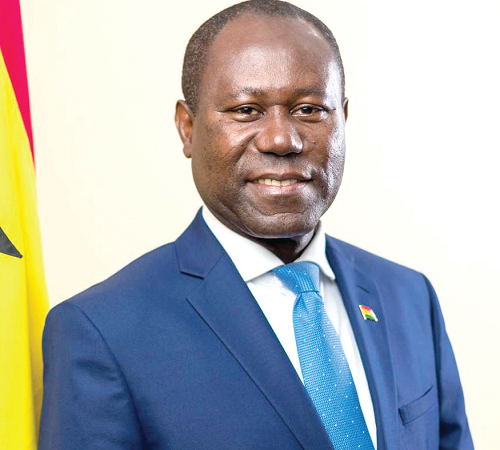
We’ll sustain farmers’ interest in cocoa industry despite drop in world market price — Aidoo
The Ghana Cocoa Board(COCOBOD) has stated that the only way to sustain the cocoa sector is to maintain the current producer price of GH¢7,600 per tonne, which translates into $1,808.
Advertisement
It said even though it did not make any economic sense to maintain the current price in the wake of dwindling prices on the world market, the decision was necessary in order to sustain the interest of farmers in the industry.
The world market price per tonne has dropped from $3,000 to $1,800, and that has compelled many cocoa producing countries to reduce their producer price significantly.
For instance, Cote d’Ivoire, which is the world's leading producer of the crop, currently pays the equivalent of GH¢5,720 that translates into $1,300 per tone and has appealed to Ghana to follow suite.
Over the last 10 years, the all-time low price is what is happening now as the producer price has dropped about 40 per cent in a few months.
Incentive to farmers
Speaking in an interview with the Daily Graphic, the Chief Executive Officer of the COCOBOD, Mr Joseph Boahen Aidoo, explained that the government had a covenant with the cocoa farmers and could not, therefore, reduce the producer price.
“It is also to show our commitment to farmers and to demonstrate our appreciation to our hard-working cocoa farmers because it is on the back of these cocoa farmers that the country has survived all these years,” he explained, adding that cocoa provided the biggest support for all the country’s development projects.
He said there was already despondency among the farmers and any attempt to reduce the producer price of the crop would push them to give out their farmlands to illegal miners, who were ready to pay any amount to secure the land.
Other Trending Stories
Enticing youth
Mr Aidoo said it had become necessary to encourage the youth to take to cocoa farming because the current crop of farmers were all aged and there was the need to prepare a succession plan.
He said cocoa farming was not an area that was appealing, particularly to the youth, adding that it would, therefore, be a big blow to the cocoa sector if government should reduce the producer price.
This is because apart from the farmers giving out their farmlands for illegal activities, the youth would not be attracted to venture into cocoa farming, Mr Aidoo said.
Hand pollination
He said as part of the strategy to attract the youth, COCOBOD had introduced hand pollination, which had the potential of increasing yields from the current 200 to 450 kilos per hectare to 3,000 kilos per hectare.
He said hand pollination sought to enhance efficiency on the farm to enable the Ghanaian farmer to be at par with their counterparts elsewhere.
Mr Aidoo explained that with that, even if the producer price would not be increased, the increase in production would compensate and cushion the farmers against the hardships that they would have endured.
Pruning
He said another way to improve the cocoa yield, to attract the youth, was the introduction of motorised hand pruning, instead of the current manual and laborious way of pruning, which was unattractive.
Mr Aidoo added that pruning could improve the yields by one-third, saying that “when all these are done, the farmer should anticipate phenomenal increase per hectare from the current 250 kilos per hectare to at least 1,500 kilos per hectare.”
Future in cocoa farming
Mr Aidoo, therefore, assured the youth that cocoa farming held very good prospects in the future and appealed to graduates to voluntarily agree to venture into cocoa farming.
Mr Aidoo noted that aside from the growing aged population that was a threat to cocoa farming in the country, the illegal mining menace was a real danger that was staring at the nation’s biggest foreign exchange earner.



